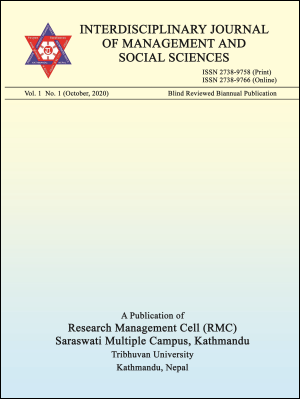The Stress and Strains of Modern Life in Nepalese Peacekeepers
DOI:
https://doi.org/10.3126/ijmss.v1i1.34617Keywords:
Convenience-Sampling, Peacekeepers, Qualitative Research, Robustness, StressAbstract
In Nepal, stress is the mental phenomenon: caused from the various environmental factors, such as chronic stress, depression, physical, psychological and behavioral problems. The main objectives of this research is to explore the association between the level of stress among peacekeepers and troops of Nepalese Army. The study was conducted among the 101 respondent’s i.e. military officers, non-officers and even peacekeepers staffs and others who are interested in this sector comprising from Likard-Scale I to V level. The Cross-Sectional data were collected from non-probability convenience sampling. Structured as well as non-structured research questionnaires were used to measure the role-stress and mental health. The qualitative research found that by chi-square test i.e.0.0001 means that there is statistically highly significance between them. Furthermore, nature of frequency measured by Box -Whisker plot, whether the opinion of respondents is symmetrical or not. Plot shows that, the difference from median to lower and upper quartile is not normal. So-that, figure shows that Null Hypothesis rejected. In fact the level of stress among Nepalese peacekeepers have higher than other troops and respondents. Fact finding reveals that consistency with theory and Robustness of the conclusion.

